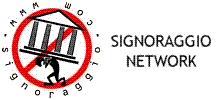 Stavo cercando su Google il termine "kerithuth" e mi compare Falsifiers of the Talmud. Il sito vuole fare luce e soprattutto sconfessare le falsificazioni che vengono usate, a quanto dicono, da antisemiti di tutto il mondo per evidenziare una forte componente razzista ebraica per tutti coloro che non sono ebrei. Il sito è quello dalla Grand Lodge of Freemasons -British Columbia and Yukon. Il che mi fa pensare. Di contro ho pure trovato il testo, considerato un falso, usato dai nazisti (e non solo, anche i cristiani "fondamentalisti" lo presentano e lo commentano per sottolineare come non possa e non potrà mai esserci una felice coesistenza cristiani-ebrei) per far sapere al mondo cosa pensavano gli ebrei dei "gentili" e quali precetti erano da seguire. Il libro si intitola "Il Talmud smascherato". Se volete farvi un idea il libro è consultabile a questo indirizzo oppure è scaricabile da questo (726 KB, pdf). Come al solito dov'è la verità? Un paio di punti del sito citato all'inizio mi hanno un po' colpito. Vi riporto il testo originale (in lingua inglese):
Stavo cercando su Google il termine "kerithuth" e mi compare Falsifiers of the Talmud. Il sito vuole fare luce e soprattutto sconfessare le falsificazioni che vengono usate, a quanto dicono, da antisemiti di tutto il mondo per evidenziare una forte componente razzista ebraica per tutti coloro che non sono ebrei. Il sito è quello dalla Grand Lodge of Freemasons -British Columbia and Yukon. Il che mi fa pensare. Di contro ho pure trovato il testo, considerato un falso, usato dai nazisti (e non solo, anche i cristiani "fondamentalisti" lo presentano e lo commentano per sottolineare come non possa e non potrà mai esserci una felice coesistenza cristiani-ebrei) per far sapere al mondo cosa pensavano gli ebrei dei "gentili" e quali precetti erano da seguire. Il libro si intitola "Il Talmud smascherato". Se volete farvi un idea il libro è consultabile a questo indirizzo oppure è scaricabile da questo (726 KB, pdf). Come al solito dov'è la verità? Un paio di punti del sito citato all'inizio mi hanno un po' colpito. Vi riporto il testo originale (in lingua inglese):
"A JEW WHO KILLS A CHRISTIAN COMMITS NO SIN, BUT OFFERS AN ACCEPTABLE SACRIFICE TO GOD. 'Even the best of the non-Jews should be killed.' (Abhodah Zarah, 26b Tosepoth)."
Abhodah Zarah, 26b, Tosepoth. Tosepoth is not a part of the Talmud. It is a collection of commentaries on the Talmud. In a passage alluded to by Van Hyning, Tosepoth quotes a Talmudic source as stating that the command of killing all Canaanites was applicable only during the war against them.
Ok, non fa parte del Talmud ma fa parte di un commentario. E comunque il testo (ed il commento) dovrebbe far riflettere.
"Jehovah created the non-Jew in human form so that the Jew would not have to be served by beasts. The non-Jew is consequently an animal in human form, and condemned to serve the Jew day and night. (Midrash Talpioth, 225-L)."
Midrash Talpioth, 225-L. This is not a volume of the Talmud. It is something composed by a Turkish Jew in the 18th century. His name was Elijah ben Solomom Abraham, ha-Kohen.
Mi ripeto. Ok, non fa parte del Talmud. Rimane il fatto che questo ebreo turco tanto tollerante, si capisce, non era. Diciamo pure che era razzista.
Dal sito, e con questo concludo, si capisce (affermano) che:
- il testo non esiste (o non esiste il libro dal quale è tratto)
- il testo fa parte di un commentario (il che non cambia la sostanza. Chi si è così espresso era razzista. E basta).
A voi, come al solito, le conclusioni.
 nera si intende: titolo nobiliare, non trasmissibile ai discendenti, conferito a chi occupava importanti uffici o apparteneva a ordini cavallereschi. Per
nera si intende: titolo nobiliare, non trasmissibile ai discendenti, conferito a chi occupava importanti uffici o apparteneva a ordini cavallereschi. Per 

 Sembra esserci un sottile filo conduttore che attraversa i secoli per perseguire uno scopo occulto. E quale può essere quella struttura che è capace di mettere a punto una strategia da attuarsi con il passare di centinaia di anni? Sarei tentato di affermare che sarebbe possibile solo da chi la inizia. Ma non avrebbe senso. Dovrebbero essere persone che non hanno la nostra stessa velocità di invecchiamento e che simulano la loro morte per non dare nell'occhio. Roba da x-file. Roba da matti. Ma se fosse invece, più semplicemente, come una specie di confraternita i cui adepti sono indottrinati sin da piccoli? Sarebbe spiegabile l'attuazione di una, dicevamo, strategia a lunghissimo termine. Ma sfugge ancora il perché. Potere? Supremazia planetaria? Siamo "allevati" come cavie per sviluppare varie razze adattabili in altri "possedimenti" planetari o per gli stessi motivi per i quali noi alleviamo il bestiame o altri animali?
Sembra esserci un sottile filo conduttore che attraversa i secoli per perseguire uno scopo occulto. E quale può essere quella struttura che è capace di mettere a punto una strategia da attuarsi con il passare di centinaia di anni? Sarei tentato di affermare che sarebbe possibile solo da chi la inizia. Ma non avrebbe senso. Dovrebbero essere persone che non hanno la nostra stessa velocità di invecchiamento e che simulano la loro morte per non dare nell'occhio. Roba da x-file. Roba da matti. Ma se fosse invece, più semplicemente, come una specie di confraternita i cui adepti sono indottrinati sin da piccoli? Sarebbe spiegabile l'attuazione di una, dicevamo, strategia a lunghissimo termine. Ma sfugge ancora il perché. Potere? Supremazia planetaria? Siamo "allevati" come cavie per sviluppare varie razze adattabili in altri "possedimenti" planetari o per gli stessi motivi per i quali noi alleviamo il bestiame o altri animali?  Di supposizioni ne possiamo fare a bizzeffe. Però di prove è difficile trovarne anche soltanto una. È vero che appare abbastanza evidente che ci sono tutte le condizioni per supporre che nel mondo esista una
Di supposizioni ne possiamo fare a bizzeffe. Però di prove è difficile trovarne anche soltanto una. È vero che appare abbastanza evidente che ci sono tutte le condizioni per supporre che nel mondo esista una  Molti storici si sono presi la briga di analizzare determinate vicende storiche e di formulare diversi possibili scenari alternativi ma plausibili (che per nostra sfortuna o fortuna non si sono realizzati) . La stessa cosa hanno fatto scrittori e sceneggiatori. Com'è facilmente intuibile dal titolo del post cosa sarebbe successo se il Giappone si fosse arreso ben prima della Germania e la Germania stessa non avesse attaccato l'Unione Sovietica ma avesse conquistato Iran ed Iraq avendo così il controllo del petrolio mediorientale? Forse ora parleremo tedesco oppure non ci sarebbe stata una Hiroshima e una Nagasaki ma una Berlino ed una Monaco di Baviera. Perché? Le ipotesi formulate sono tante. Una potrebbe essere la seguente:
Molti storici si sono presi la briga di analizzare determinate vicende storiche e di formulare diversi possibili scenari alternativi ma plausibili (che per nostra sfortuna o fortuna non si sono realizzati) . La stessa cosa hanno fatto scrittori e sceneggiatori. Com'è facilmente intuibile dal titolo del post cosa sarebbe successo se il Giappone si fosse arreso ben prima della Germania e la Germania stessa non avesse attaccato l'Unione Sovietica ma avesse conquistato Iran ed Iraq avendo così il controllo del petrolio mediorientale? Forse ora parleremo tedesco oppure non ci sarebbe stata una Hiroshima e una Nagasaki ma una Berlino ed una Monaco di Baviera. Perché? Le ipotesi formulate sono tante. Una potrebbe essere la seguente: 




 Sia il sangue dei vincitori che quello dei vinti è rosso. E su questo non c'è dubbio. Quando decisi di aprire questo blog non mi preoccupai assolutamente di pubblicizzarlo (a parte i link di altri blog, se questa può essere considerata una "forma" di pubblicità") e decisi (in un secondo tempo) di non permettere commenti. Il fatto di cercare di essere il più possibile neutrale ti espone, sia da una parte che dall'altra, a critiche della fazione opposta. Perché la neutralità è ben vista solo quando non va contro le idee di qualcuno che ti dice che non è possibile, di fronte a determinate situazioni, non schierarsi. Altresì chi parteggia per una determinata idea o movimento non ha mai la serenità d'animo per cogliere quei (magari pochi) barlumi nella più profonda oscurità che simboleggia l'altra parte. Quelle fioche luci che possono intravedersi sono la prova che si possono trovare briciole di umanità in un mondo che in gran parte ne è privo o che ci vogliono far credere che ne sia privo. In un post precedente affermavo che la scarsa visibilità di questo blog mi permetteva di scrivere, fondamentalmente, per me e, nel contempo, di dare forma ai pensieri ed alle riflessioni che nascevano dopo la lettura di moltissimi testi sulla politica e sulla storia. Nel tempo molte certezze sono venute meno. Ed ora mi trovo a non avere più motivo di schierarmi. Troppe cose non tornano. Tra scegliere ed avere scheletri nell'armadio e rimanere neutrale ho optato per la seconda possibilità. Certi avvenimenti possono essere censurati, possono essere mostrati da un ottica diversa (e, a volte, fuorviante), possono essere ingigantiti o può esser loro tolta la giusta importanza. Ma qualcosa rimane sempre. E quel qualcosa, se non ti permette di capire, almeno ti da' l'idea che non tutto quello ti è stato detto o raccontato è la pura verità. Perché, soprattutto, dopo un'immane tragedia come può essere una guerra, chi sta dalla parte dei vincitori non ha nessun interesse a mostrare al mondo i propri errori. Tutto è andato per il bene, noi siamo "migliori", "più buoni". In realtà, come diceva
Sia il sangue dei vincitori che quello dei vinti è rosso. E su questo non c'è dubbio. Quando decisi di aprire questo blog non mi preoccupai assolutamente di pubblicizzarlo (a parte i link di altri blog, se questa può essere considerata una "forma" di pubblicità") e decisi (in un secondo tempo) di non permettere commenti. Il fatto di cercare di essere il più possibile neutrale ti espone, sia da una parte che dall'altra, a critiche della fazione opposta. Perché la neutralità è ben vista solo quando non va contro le idee di qualcuno che ti dice che non è possibile, di fronte a determinate situazioni, non schierarsi. Altresì chi parteggia per una determinata idea o movimento non ha mai la serenità d'animo per cogliere quei (magari pochi) barlumi nella più profonda oscurità che simboleggia l'altra parte. Quelle fioche luci che possono intravedersi sono la prova che si possono trovare briciole di umanità in un mondo che in gran parte ne è privo o che ci vogliono far credere che ne sia privo. In un post precedente affermavo che la scarsa visibilità di questo blog mi permetteva di scrivere, fondamentalmente, per me e, nel contempo, di dare forma ai pensieri ed alle riflessioni che nascevano dopo la lettura di moltissimi testi sulla politica e sulla storia. Nel tempo molte certezze sono venute meno. Ed ora mi trovo a non avere più motivo di schierarmi. Troppe cose non tornano. Tra scegliere ed avere scheletri nell'armadio e rimanere neutrale ho optato per la seconda possibilità. Certi avvenimenti possono essere censurati, possono essere mostrati da un ottica diversa (e, a volte, fuorviante), possono essere ingigantiti o può esser loro tolta la giusta importanza. Ma qualcosa rimane sempre. E quel qualcosa, se non ti permette di capire, almeno ti da' l'idea che non tutto quello ti è stato detto o raccontato è la pura verità. Perché, soprattutto, dopo un'immane tragedia come può essere una guerra, chi sta dalla parte dei vincitori non ha nessun interesse a mostrare al mondo i propri errori. Tutto è andato per il bene, noi siamo "migliori", "più buoni". In realtà, come diceva 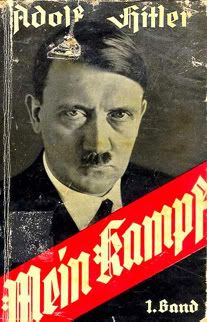

 nello stesso ordine così come compaiono. Vi consiglio una ricerca approfondita su uno dei pochi fascisti che, in qualche modo, impensierì Mussolini. Ne vale la pena.
nello stesso ordine così come compaiono. Vi consiglio una ricerca approfondita su uno dei pochi fascisti che, in qualche modo, impensierì Mussolini. Ne vale la pena.

.jpg)
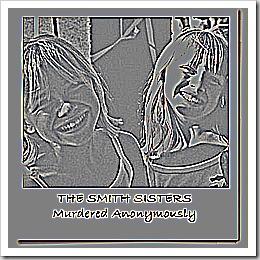

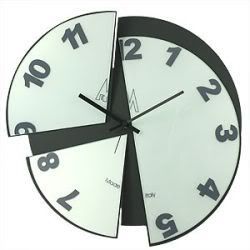 possono pure sembrare un'eternità. Come si dice spiegasse la teoria della relatività A. Einstein, è solo un punto di vista. Se passi mezzora con il tuo partner possono sembrarti cinque minuti. Prova a passarli seduto sopra una stufa incandescente e quei trenta minuti potranno sembrarti un tempo sufficientemente lungo da farti ragionare su cosa significa era geologica. Tante volte nella mia vita mi è capitato di riflettere sulla durata del tempo e su come lo percepiamo. Ho imparato ad aspettare (dote fondamentale per un osservatore). Ho imparato a prendermi gioco del tempo come lui fa con me. Ma ho anche imparato a rispettarlo. Puoi burlarti di lui solo se lui fa lo stesso con te. Altrimenti si vendica. Mezzòra per alcuni può essere un buon tempo per la durata di una scopata. Ma io mi allineo con quello che dice il Ciacci ed altri. Per due quarti d'ora non mi abbasso neppure i calzoni (altrimenti, diciamolo, trattasi di sveltina e, a volte, pure quella può andar bene...). Dieci volte tre minuti passati in un ingorgo possono sembrare molti ma sempre pochi se l'ultima volta siamo rimasti bloccati nel traffico due ore. E così via... Punti di vista. Modi diversi di osservare e considerare gli avvenimenti. Beh... Per scrivere queste due righe ho impiegato venti minuti... Altri dieci ed ecco la mezzòra. Piccola precisazione: questa frazione di tempo diventa indefinita (o "elastica") quando a dirti che ci vorrà questo lasso di tempo sono le donne quando dicono quanto tempo ci vorrà a prepararsi e quando a dirtelo è il solito amico che misconosce quell'utilissimo strumento segnatempo chiamato orologio...
possono pure sembrare un'eternità. Come si dice spiegasse la teoria della relatività A. Einstein, è solo un punto di vista. Se passi mezzora con il tuo partner possono sembrarti cinque minuti. Prova a passarli seduto sopra una stufa incandescente e quei trenta minuti potranno sembrarti un tempo sufficientemente lungo da farti ragionare su cosa significa era geologica. Tante volte nella mia vita mi è capitato di riflettere sulla durata del tempo e su come lo percepiamo. Ho imparato ad aspettare (dote fondamentale per un osservatore). Ho imparato a prendermi gioco del tempo come lui fa con me. Ma ho anche imparato a rispettarlo. Puoi burlarti di lui solo se lui fa lo stesso con te. Altrimenti si vendica. Mezzòra per alcuni può essere un buon tempo per la durata di una scopata. Ma io mi allineo con quello che dice il Ciacci ed altri. Per due quarti d'ora non mi abbasso neppure i calzoni (altrimenti, diciamolo, trattasi di sveltina e, a volte, pure quella può andar bene...). Dieci volte tre minuti passati in un ingorgo possono sembrare molti ma sempre pochi se l'ultima volta siamo rimasti bloccati nel traffico due ore. E così via... Punti di vista. Modi diversi di osservare e considerare gli avvenimenti. Beh... Per scrivere queste due righe ho impiegato venti minuti... Altri dieci ed ecco la mezzòra. Piccola precisazione: questa frazione di tempo diventa indefinita (o "elastica") quando a dirti che ci vorrà questo lasso di tempo sono le donne quando dicono quanto tempo ci vorrà a prepararsi e quando a dirtelo è il solito amico che misconosce quell'utilissimo strumento segnatempo chiamato orologio...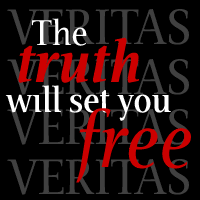 In un mondo come il nostro e fin dalla notte dei tempi la verità ha le seguenti caratteristiche:
In un mondo come il nostro e fin dalla notte dei tempi la verità ha le seguenti caratteristiche: Il problema è serio. In certi stati negare dei tragici avvenimenti che hanno visto come sfortunati protagonisti una grandissima (?) parte della popolazione di una ben determinata comunità è reato. Sembrerebbe (è) un'imposizione di una verità? O della verità? Senza scomodare complotti mondiali e manovre internazionali occulte, quello che salta agli occhi sono i fatti. Si può negare il fatto che gli americani hanno sterminato i nativi (e fai pure bella figura di fronte a taluni) ma non si può negare, ad esempio, la Shoah (e in alcuni stati europei è reato). Fermo restando che l'ammonimento di Primo Levi (È successo, quindi può succedere ancora. - e, aggiungo io, volendo dar credito a P. Levi) deve essere tenuto nella massima considerazione, documentandomi (e non poco) sulla Shoah ho scoperto dati talmente controversi (sia da una parte che dall'altra) da rimanere sbigottito e perplesso. La verità qual'è?
Il problema è serio. In certi stati negare dei tragici avvenimenti che hanno visto come sfortunati protagonisti una grandissima (?) parte della popolazione di una ben determinata comunità è reato. Sembrerebbe (è) un'imposizione di una verità? O della verità? Senza scomodare complotti mondiali e manovre internazionali occulte, quello che salta agli occhi sono i fatti. Si può negare il fatto che gli americani hanno sterminato i nativi (e fai pure bella figura di fronte a taluni) ma non si può negare, ad esempio, la Shoah (e in alcuni stati europei è reato). Fermo restando che l'ammonimento di Primo Levi (È successo, quindi può succedere ancora. - e, aggiungo io, volendo dar credito a P. Levi) deve essere tenuto nella massima considerazione, documentandomi (e non poco) sulla Shoah ho scoperto dati talmente controversi (sia da una parte che dall'altra) da rimanere sbigottito e perplesso. La verità qual'è?  Le tesi dei cosiddetti revisionisti sono documentate (o per meglio dire, documentano l' improbabilità o l' impossibilità che certe condizioni si siano verificate) quanto e più delle (presunte) prove presentate al processo di Norimberga (che risultano essere la maggior parte delle volte dichiarazioni o testimonianze per interposta persona). Una cosa è certa: lo spazio dato a chi non "crede" è esiguo. Certo non è un bell'esempio di democrazia. L'obiezione che si sente o che si legge è, principalmente, questa: per chi si è macchiato di crimini come quelli attribuiti ai tedeschi nessuna pietà e per chi non accetta la storia come viene proposta nessun confronto e nessuno spazio per controbattere, per confrontarsi. Ma se la guerra l'avesse vinta la Germania come verrebbero descritti i "partigiani"? Come terroristi? Forse sì. Ed il popolo rimarrebbe sdegnato per le "nefandezze" perpetrate da russi, inglesi e americani (che comunque sono avvenute, vedi il bombardamento di Dresda). Ed i ricchi ci sarebbero comunque stati. Gente del genere non ha un credo politico: il loro unico credo è il dio denaro... E poi sono gli unici che dalle guerre hanno da guadagnarci. Se poi muore il "popolino" che problema c'è? Ci sarà sempre qualcuno da incolpare...
Le tesi dei cosiddetti revisionisti sono documentate (o per meglio dire, documentano l' improbabilità o l' impossibilità che certe condizioni si siano verificate) quanto e più delle (presunte) prove presentate al processo di Norimberga (che risultano essere la maggior parte delle volte dichiarazioni o testimonianze per interposta persona). Una cosa è certa: lo spazio dato a chi non "crede" è esiguo. Certo non è un bell'esempio di democrazia. L'obiezione che si sente o che si legge è, principalmente, questa: per chi si è macchiato di crimini come quelli attribuiti ai tedeschi nessuna pietà e per chi non accetta la storia come viene proposta nessun confronto e nessuno spazio per controbattere, per confrontarsi. Ma se la guerra l'avesse vinta la Germania come verrebbero descritti i "partigiani"? Come terroristi? Forse sì. Ed il popolo rimarrebbe sdegnato per le "nefandezze" perpetrate da russi, inglesi e americani (che comunque sono avvenute, vedi il bombardamento di Dresda). Ed i ricchi ci sarebbero comunque stati. Gente del genere non ha un credo politico: il loro unico credo è il dio denaro... E poi sono gli unici che dalle guerre hanno da guadagnarci. Se poi muore il "popolino" che problema c'è? Ci sarà sempre qualcuno da incolpare...
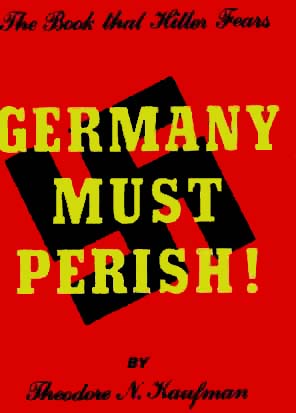 Germany Must Perish! (pubblicato nel 1940, primi del 1941). Kaufman, ebreo-americano ben prima dell'entrata in guerra degli USA sintetizzava così il libro presentandolo al Times (che così lo pubblicizzava): "A dynamic volume outlining a plan for the extinction of Germany and containing a map showing possible dissection and apportionment of its territory.". Nel libro le proposte di sterilizzazione forzata del popolo tedesco (affinché finisse per estinguersi) e
Germany Must Perish! (pubblicato nel 1940, primi del 1941). Kaufman, ebreo-americano ben prima dell'entrata in guerra degli USA sintetizzava così il libro presentandolo al Times (che così lo pubblicizzava): "A dynamic volume outlining a plan for the extinction of Germany and containing a map showing possible dissection and apportionment of its territory.". Nel libro le proposte di sterilizzazione forzata del popolo tedesco (affinché finisse per estinguersi) e 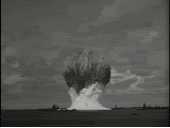 Nel post precedente avete visto il video dell'Operazione Crossroads. Gli Stati Uniti d'America anche in questo caso non si sono preoccupati più di tanto dei nativi presenti nell'atollo di Bikini. Direi che facevano e fanno proprio il concetto nazista di
Nel post precedente avete visto il video dell'Operazione Crossroads. Gli Stati Uniti d'America anche in questo caso non si sono preoccupati più di tanto dei nativi presenti nell'atollo di Bikini. Direi che facevano e fanno proprio il concetto nazista di 




